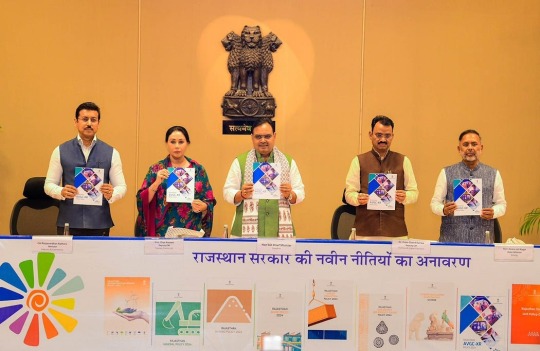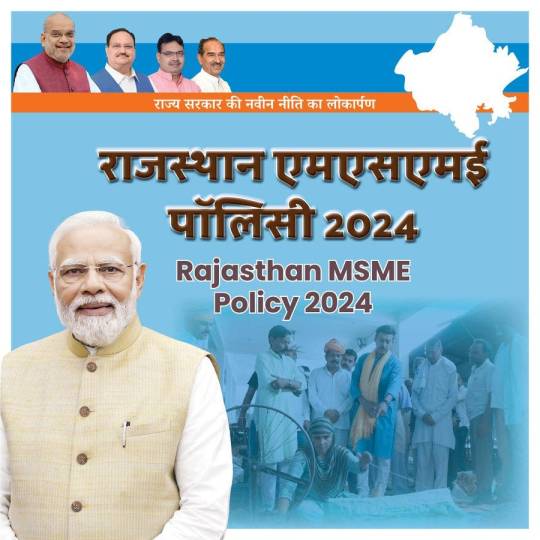#msme startup scheme
Explore tagged Tumblr posts
Text
Choosing The Best Bank for Msme Loan: Top Options For 2024
In the dynamic landscape of small and medium enterprises (SMEs), securing the right financing is crucial for growth and sustainability. For MSMEs in India, finding the best bank for MSME loan can make a significant difference in their financial health and expansion capabilities. With various options available, it's essential to understand the top banks and their offerings for 2024, especially for those seeking a 2-crore loan for business or exploring unsecured SME loans.
Understanding MSME finance
MSME finance encompasses a range of financial services tailored to meet the needs of micro, small, and medium enterprises. Given the diversity in the needs of MSMEs, banks offer various loan products like machinery loan for msme and msme subsidy on machinery, including those under the MSME startup scheme and government loan for MSME programs.
Top banks for MSME loans in 2024
1. State Bank of India (SBI)
SBI continues to be a leader in the MSME finance sector. SBI’s offerings include unsecured SME loans, which are ideal for businesses that may not have significant collateral to pledge.
2. HDFC Bank
HDFC Bank is another top contender when it comes to MSME loans. For those looking for a substantial sum, HDFC also facilitates a 2 crore loan for business purposes, ensuring ample capital for expansion.
3. ICICI Bank
ICICI Bank offers a comprehensive suite of MSME finance solutions, including the MSME startup scheme. Their user-friendly application process and quick disbursal times are added advantages.
4. Punjab National Bank (PNB)
PNB stands out with its dedicated MSME loan products that cater to various business needs. Their government loan for MSME programs are designed to provide financial assistance with favourable terms.
5. Bank of Baroda
Bank of Baroda has a strong presence in the MSME sector, offering a range of financial products to support business growth. Their MSME loans are designed to cater to different business stages and needs, including the requirement for a 2 crore loan for business expansion. Bank of Baroda also participates in government initiatives, providing govt MSME loans to help businesses access affordable financing.
Factors to consider when choosing a bank
When selecting the best bank for MSME loan, several factors should be considered:
- Interest rates and fees: Compare the interest rates and any additional fees associated with the loan. Lower rates can significantly reduce the cost of borrowing.
- Loan amount and terms: Ensure that the bank offers the loan amount you need, such as a 2 crore loan for business, and flexible repayment terms that suit your financial capabilities.
- Collateral requirements: Determine if the loan is secured or unsecured. Unsecured SME loans are beneficial for businesses without substantial assets to pledge.
- Application process: Look for banks with a straightforward and quick application process. This can save time and help you access funds faster.
- Customer service: Good customer service can make the loan process smoother and provide ongoing support for your financial needs.
Leveraging Klub for funding opportunities
Klub, an innovative platform specialising in revenue-based financing, offers startups an alternative funding model. By leveraging Klub, entrepreneurs can access capital without giving up equity, aligning repayments with their revenue streams.
Conclusion
Choosing the best bank for MSME loan involves careful consideration of various factors, including the specific needs of your business and the terms offered by different banks. In 2024, banks like SBI, HDFC, ICICI, PNB, and Bank of Baroda stand out as top options for MSME finance. Whether you are seeking a government loan for MSME or a govt msme loan scheme, an unsecured SME loan, or a substantial loan amount for business expansion, these banks provide a range of solutions to support your enterprise’s growth. By evaluating the available options and selecting the best fit, MSMEs can secure the financial backing needed to thrive in today’s competitive market.
#2 crore loan for business#best bank for msme loan#msme startup scheme#government loan for msme#unsecured sme loans
0 notes
Text

Shreekant Patil Highlights Government Schemes for Export Growth at UAE-India Conference, recognized by Sharjah Chamber of Commerce for his Contributions to Boosting India’s Export Capability.
#Shreekant Patil#Leadership#MSME#Exports#India#Consultant#Startup India#Govt Schemes#Mumbai#Maharashtra#Nashik#UAE#Saudi Arebia#CEPA#Agreement#Conference#Internation#Speaker#Saudi Arebia Chamber of Commerce
0 notes
Text
Shreekant Patil : Startup India Mentor, LEAN MSME, ZED MSME Consultant in Nashik Maharashtra India
@shreekant-patil
#Shreekant Patil#Consultant#Startup India#Mentor#Advisor#MSME#Standup#Exporter#ONDC#Govt Schemes#Nashik
0 notes
Text
Hospital Subsidy Consultants | Food Processing Unit Subsidy | Business Loan Msme
How Consultancy Can Help You? There are leading industrial consultancy providers who have specialized in offering the stylish services for both central and state government subventions for artificial enterprises in India. As you know, colorful Central Government Subsidy Consultants and State Government offer subventions for new systems and the expansion of other systems. To garner further knowledge about the guidelines for similar subventions, the advisers are there to offer you a detailed companion. Right from the conception till acquiring the subventions to your establishment, you'll garner the knowledge and the proceedings for all. Anyhow of the size or typography of the enterprise, if you match through the process leading to garner subventions, there's no looking back. Advisers have in- depth knowledge about all the schemes which isn't possible to garner for anybody differently. The educated platoon of professionals keep themselves modernize with their knowledge about the rearmost scheme of subventions that's blazoned by the Government. In parts of the Central and state government, subventions for the establishments of newer systems and contemporizing the being systems. Being systems make way to expansion, diversification, recuperation and modernization are also eligible for government subventions.
0 notes
Text
New Company Registration in India – A Step-by-Step Guide
Starting a business in India is an exciting venture, but it requires careful planning and adherence to legal regulations. Mercuries & Associate LLP specializes in company registration services, ensuring a seamless and hassle-free process for entrepreneurs. If you are planning to register a new company in India, this guide will help you understand the key steps involved.

Why Register a Company in India?
India offers a dynamic business environment with numerous benefits for startups and established businesses. Some of the advantages of registering a company in India include:
Limited Liability Protection: Safeguards personal assets from business liabilities.
Legal Recognition: A registered company enjoys credibility and trust in the market.
Access to Funding: Makes it easier to raise capital through investors and banks.
Tax Benefits: Eligible for tax exemptions and deductions under government schemes.
Perpetual Succession: Ensures continuity irrespective of ownership changes.
Types of Business Entities in India
Before proceeding with registration, choosing the right business structure is essential. The common types of business entities in India include:
Private Limited Company (PLC)
Public Limited Company (PLC)
Limited Liability Partnership (LLP)
One Person Company (OPC)
Sole Proprietorship
Partnership Firm
Step-by-Step Process for New Company Registration
Step 1: Obtain Digital Signature Certificate (DSC)
The first step is acquiring a Digital Signature Certificate (DSC) for the proposed directors, as all filings with the Ministry of Corporate Affairs (MCA) are done electronically.
Step 2: Apply for Director Identification Number (DIN)
Every company director must have a unique DIN, which can be obtained by filing Form DIR-3 with the MCA.
Step 3: Name Reservation with MCA
Choosing a unique name is crucial. The name must comply with MCA guidelines and can be reserved using the SPICe+ Part A form.
Step 4: Drafting of Memorandum & Articles of Association
The Memorandum of Association (MoA) and Articles of Association (AoA) define the company's objectives, rules, and regulations. These documents are filed with the MCA.
Step 5: Filing of Incorporation Forms
The company incorporation application is submitted through the SPICe+ Part B form, along with necessary documents, including identity proof, address proof, and NOC from the property owner (if applicable).
Step 6: PAN and TAN Application
Upon successful incorporation, the company receives its Certificate of Incorporation (CoI), along with its PAN (Permanent Account Number) and TAN (Tax Deduction and Collection Account Number).
Step 7: Open a Business Bank Account
A corporate bank account is necessary for conducting business transactions. The company can use its incorporation documents to open a bank account.
Step 8: GST Registration and Other Compliances
Depending on the nature of the business, GST registration, MSME registration, and other regulatory compliances may be required.
Why Choose Mercuries & Associate LLP?
At Mercuries & Associate LLP, we provide expert guidance and end-to-end assistance for new company registration in India. Our services include:
Business structure advisory
Name reservation assistance
Documentation and legal compliance
PAN, TAN, and GST registration
Post-incorporation compliance support
Conclusion
Registering a company in India is a strategic decision that can set the foundation for business success. With expert support from Mercuries & Associate LLP, entrepreneurs can navigate the legal requirements effortlessly and focus on growing their business.
#accounting & bookkeeping services in india#audit#businessregistration#chartered accountant#foreign companies registration in india#income tax#taxation#auditor#ap management services
3 notes
·
View notes
Text
Union Budget 2025: Rajasthan Minister Col Rajyavardhan Rathore Highlights Boost for MSMEs & Startups

The Union Budget 2025, presented by Finance Minister Nirmala Sitharaman, has placed a strong emphasis on fostering entrepreneurship, innovation, and economic self-reliance. Rajasthan’s Minister Rajyavardhan Singh Rathore has lauded the budget’s focus on Micro, Small & Medium Enterprises (MSMEs) and Startups, calling it a game-changer for India’s business ecosystem.
This budget introduces bold incentives, funding support, and digital transformation initiatives to empower small businesses and young entrepreneurs, ensuring that they remain the backbone of India’s growing economy.
Key Announcements for MSMEs & Startups
1. Enhanced Credit Support for MSMEs
✅ ₹50,000 Crore Expansion in Credit Guarantee Scheme — Making loans easily accessible for small businesses. ✅ Interest Subvention for MSMEs — Lower borrowing costs to promote business expansion. ✅ Tax Relief for MSMEs — Increased turnover threshold for tax exemptions.
2. Startup India 3.0 — A New Era of Entrepreneurship
✅ ₹25,000 Crore Startup Growth Fund — Supporting early-stage and high-impact startups. ✅ Easier Compliance & Single Window Clearance for business registrations. ✅ Tax Holiday Extension for eligible startups, reducing financial stress.
3. Technology & Digital Transformation
✅ AI, Blockchain & Cloud Support for MSMEs — Helping businesses adopt advanced technology. ✅ Digital Payment Incentives — Encouraging a cashless economy and financial inclusion. ✅ Boost for FinTech & E-commerce Startups — Simplified regulations and incentives.
4. Skill Development & Job Creation
✅ New Entrepreneurship Hubs in Tier-2 & Tier-3 Cities to nurture local talent. ✅ ₹10,000 Crore Allocation for Digital Skilling & AI Training — Preparing the youth for high-growth industries. ✅ Expansion of Production-Linked Incentive (PLI) Scheme to generate employment in key sectors.
Rajasthan’s Gains: A Thriving Hub for MSMEs & Startups
Minister Rajyavardhan Singh Rathore highlighted how Rajasthan stands to benefit immensely from these policies, stating:
“This budget reflects the Modi government’s unwavering commitment to empowering MSMEs and startups. Rajasthan, with its strong entrepreneurial spirit, will see a surge in new businesses, innovation hubs, and employment opportunities.”
He emphasized three major gains for Rajasthan’s business ecosystem:
Tourism & Handicrafts MSMEs will receive enhanced support for global market expansion.
Renewable Energy Startups in Rajasthan will gain access to Green Funds.
Agritech & Rural Startups will benefit from new funding and digital infrastructure.
A Vision for Aatmanirbhar Bharat
The Union Budget 2025 ensures that India’s MSMEs and startups thrive in a competitive global economy. With tax incentives, credit support, and technology integration, this budget paves the way for a self-reliant and prosperous India.
Col. Rajyavardhan Rathore’s message to entrepreneurs:
“This is the best time to be an entrepreneur in India. With government support and strong policies, MSMEs and startups are set to become the driving force behind ‘Viksit Bharat’.”
🚀 A New Era of Business Begins! Jai Hind! Jai Rajasthan! 🇮🇳
4 notes
·
View notes
Text
New Policies of Rajasthan Government Unveiled: Col Rajyavardhan Rathore

Rajasthan, known for its cultural heritage and historic prominence, is making waves with forward-thinking policies designed to usher in a new era of growth and development. Col Rajyavardhan Rathore, a dynamic leader and advocate of progress, has been instrumental in shaping and supporting these initiatives. These policies aim to address critical areas such as economic development, environmental sustainability, social equity, and digital transformation, marking a significant step forward for the state.
A Vision for Progress
The new policies reflect the Rajasthan government’s commitment to fostering innovation, inclusivity, and sustainability. By targeting various sectors, from education and infrastructure to technology and rural development, these initiatives promise a brighter and more prosperous future for all.

Key Policies Unveiled
1. Rajasthan MSME Policy 2024
Micro, Small, and Medium Enterprises (MSMEs) form the backbone of Rajasthan’s economy. This policy aims to:
Provide financial assistance and subsidies to MSMEs.
Simplify regulatory processes to encourage entrepreneurship.
Create employment opportunities, especially in rural areas.

2. One District, One Product (ODOP) Scheme
To boost local businesses and crafts, the ODOP scheme promotes:
Identifying unique products in each district for focused development.
Establishing market linkages and export support.
Providing branding and marketing assistance to artisans and producers.

3. Rajasthan Startup Policy 2024
The state’s focus on fostering innovation is evident through its startup-friendly policies, which include:
Seed funding and incubation support for startups.
Incentives for women-led and rural-based startups.
Establishing innovation hubs across districts.

4. Integrated Cluster Development Scheme
This policy aims to modernize and empower traditional industries by:
Developing common facilities for industrial clusters.
Providing training programs for workers in emerging technologies.
Enhancing infrastructure to attract investments.

5. Rajasthan AVGC-XR Policy 2024
Focusing on the Animation, Visual Effects, Gaming, and Extended Reality (AVGC-XR) sectors, this policy includes:
Setting up AVGC-XR training institutes.
Providing subsidies for software and hardware procurement.
Promoting Rajasthan as a hub for creative industries.

Environmental Sustainability Policies
6. Rajasthan Green Energy Initiative
To combat climate change and boost renewable energy production, the policy emphasizes:
Developing large-scale solar and wind energy projects.
Offering incentives for businesses to adopt green energy solutions.
Encouraging electric vehicle adoption through subsidies.
7. Water Conservation Policy
Addressing water scarcity in Rajasthan, this policy includes:
Promoting rainwater harvesting and groundwater recharge.
Modernizing irrigation systems to improve efficiency.
Encouraging community-driven water conservation efforts.
Social Development Policies
8. Rajasthan Women Empowerment Scheme
Aimed at promoting gender equality, this policy focuses on:
Providing skill training and entrepreneurship opportunities for women.
Ensuring safety and security through improved law enforcement.
Offering financial incentives for girls’ education.
9. Antyodaya Seva Camp Initiative
Launched to mark the successful completion of the BJP government’s first year, this program:
Provides direct access to government schemes and services.
Ensures welfare benefits reach the most marginalized communities.
Organizes awareness drives about social and economic rights.
Education and Digital Transformation
10. Rajasthan DigiSkill Program
To prepare the workforce for a digital future, this program includes:
Training in digital tools, AI, and coding for youth.
Setting up digital labs in schools and colleges.
Offering certifications in high-demand IT skills.
11. Rajasthan Education Excellence Policy
Focused on improving education quality across the state, the policy entails:
Modernizing school infrastructure and integrating digital tools.
Recruiting highly qualified teachers for rural and underserved areas.
Enhancing vocational training opportunities.
Economic Growth and Investment Policies
12. Rising Rajasthan Global Investment Summit
This annual event highlights the government’s commitment to attracting global investments by:
Showcasing Rajasthan’s potential in IT, manufacturing, and tourism.
Facilitating investor-friendly policies and incentives.
Establishing Special Economic Zones (SEZs) for key industries.
13. Rajasthan Export Promotion Policy
Aimed at boosting exports, this policy provides:
Support for exporters through subsidies and infrastructure.
Promotion of Rajasthan’s traditional handicrafts and textiles globally.
Setting up export training centers for budding entrepreneurs.
Col Rajyavardhan Rathore: A Champion of Progress
Col Rajyavardhan Rathore has been a driving force behind these transformative policies. His efforts include:
Advocating for inclusive and sustainable growth.
Encouraging public-private partnerships to enhance infrastructure and investment.
Ensuring that government initiatives are accessible and impactful at the grassroots level.
Impact of the New Policies
Economic Growth
Increased investments in key sectors like IT, renewable energy, and manufacturing.
Growth in MSMEs and startups, creating job opportunities.
Social Development
Enhanced opportunities for women and marginalized communities.
Improved access to education and healthcare.
Sustainability
Progress in renewable energy adoption and water conservation.
Reduced carbon footprint through green energy initiatives.
The Road Ahead
With these policies, Rajasthan is poised to become a leading state in innovation, sustainability, and social equity. The government’s commitment, supported by leaders like Col Rajyavardhan Rathore, ensures that this vision translates into reality. As the state charts its path forward, it sets a benchmark for holistic and inclusive development in India.
2 notes
·
View notes
Text
A guide to enhance your business growth
Running a business is akin to navigating a complex maze, and every entrepreneur dreams of not just surviving but thriving. In the Indian business landscape, the government has laid out a golden path for micro, small, and medium enterprises (MSMEs) through a simple yet powerful tool – MSME registration. In this guide, let's explore how this seemingly mundane registration process can be your ticket to unparalleled business growth.
Understanding the MSME Advantage
The Heartbeat of the Economy:
Micro, Small, and Medium Enterprises collectively form the heartbeat of the Indian economy. From local grocery stores to innovative startups, these businesses contribute not only to economic development but also to job creation, fostering a robust and inclusive growth environment.
Unlocking Financial Avenues:
One of the immediate perks of MSME registration is the access to financial assistance and credit facilities. Financial institutions offer tailored loans at favorable terms, recognizing the importance of these enterprises in driving economic progress.
The MSME Registration Journey
A Simpler Path Than You Think:
Contrary to popular belief, the MSME registration process is not a bureaucratic labyrinth. It's a straightforward journey that involves providing essential details about your business, such as PAN, Aadhaar, and other relevant information. Whether you choose the online portal or opt for the traditional route at District Industries Centres, the process is designed to be accessible.
Documents: Your Passport to Opportunities:
The importance of documentation in the registration process cannot be overstated. Your Aadhaar card, PAN card, business address proof, and details of your plant and machinery are the keys that unlock the door to a myriad of government schemes and subsidies.
The MSME Advantage Unveiled
Market Access and Procurement Preferences:
Once you've acquired your MSME registration, you find yourself in a prime position in government procurement. MSMEs are often given preference in government tenders, providing a golden opportunity to secure contracts and expand your market reach.
Technology Upgradation and Subsidies:
In the rapidly evolving business landscape, technology is the differentiator. MSME registration brings with it the chance to upgrade your technology with subsidies for adopting new and advanced processes. This not only boosts efficiency but also enhances your competitiveness.
Navigating the Schemes and Subsidies Landscape
Credit Linked Capital Subsidy Scheme (CLCSS):
At the forefront of government schemes is CLCSS, a game-changer for technology upgradation. It provides capital subsidies to MSMEs, facilitating access to credit for purchasing new machinery and equipment.
Pradhan Mantri Employment Generation Programme (PMEGP):
For those looking to embark on the entrepreneurial journey, PMEGP is the beacon. This credit-linked subsidy program promotes self-employment, creating not just businesses but livelihoods.
Credit Guarantee Fund Scheme for Micro and Small Enterprises (CGMSE):
The fear of collateral is a common hurdle for many small businesses. CGMSE eliminates this barrier by offering collateral-free credit facilities, making it easier for MSMEs to access the capital needed for growth.
Tailoring Your Approach
District Industries Centres (DIC) and National Small Industries Corporation (NSIC):
Think of DIC and NSIC as your business allies. DIC, as a local agency, offers guidance and support, while NSIC provides a range of services from marketing assistance to credit facilitation. Engaging with these institutions can significantly enhance your MSME journey.
Tech and Quality Upgradation Support:
The government's emphasis on quality is evident through schemes like Lean Manufacturing Competitiveness Scheme (LMCS) and Quality Management Standards & Quality Technology Tools (QMS/QTT). These initiatives not only boost competitiveness but also position your business as a paragon of quality in the market.
Export Promotion and Market Development:
Venturing into global markets can seem daunting, but the Market Development Assistance Scheme for MSMEs is a trustworthy companion. It provides financial support for participating in international trade fairs, opening doors to new business horizons.
Overcoming Challenges for Seamless Growth
Lack of Awareness:
One of the challenges MSMEs often face is the lack of awareness about available schemes. Entrepreneurs can overcome this by actively seeking information through government portals, industry associations, and local MSME support cells.
Complex Application Processes:
Cumbersome application procedures can be discouraging, but persistence pays off. Simplifying the application process and seeking assistance from dedicated facilitation services or MSME support agencies can make the journey smoother.
Continuous Evaluation and Adaptation
Performance and Credit Rating Scheme:
Enhancing your creditworthiness is an ongoing process. The Performance and Credit Rating Scheme allows MSMEs to undergo assessments, showcasing financial stability to potential investors and lenders.
Embracing Continuous Improvement:
The business landscape is dynamic, and your approach should be too. Regularly assess the impact of government schemes on your operations, adapt to changes, and stay informed about updates to maximize benefits continually.
Conclusion: Your Journey to Unprecedented Growth
In conclusion, MSME registration in India is not just a formality; it's your gateway to a realm of opportunities. By understanding the classifications, embracing government schemes, and overcoming challenges, you position your business for sustainable growth. The government's commitment to fostering MSMEs is a testament to the integral role these enterprises play in shaping the nation's economic future. So, don't just register – embark on a journey of growth, innovation, and success. The path is laid; it's time to walk it.
Learn more at : https://msme-registration.in/
#udyog aadhar free registration#msme free registration#msme registration free#print udyam certificate#free udyog aadhar registration#udyog aadhar update#msme registration online#msme loan#online business#msme
2 notes
·
View notes
Text
Empowering MSMEs with Budget 2025: The Role of Business Automation Tools
The 2025-26 Budget prioritizes empowering Micro, Small, and Medium Enterprises (MSME), to promote automation and digital innovation. With critical provisions to improve operational efficiency competitiveness, this budget has introduced measures like enhanced investment and turnover limits, raised by 2.5 and 2 times. This strategic move caters to empowering MSMEs to scale operations and promote economic growth and job creation through business automation tools.
In addition to financial reforms, the union budget emphasized integrating automation systems to modernize MSMEs to stay ahead of the curve. By providing accessibility to credit and minimizing bureaucratic hurdles, governments strive to encourage adopting digital technologies like field sales automation solutions to improve productivity and more.
These tools will provide MSMEs with great ease in their operations and expand the market reach of their offer competitiveness in both national and international markets. The focus presented on digital transformation in the union budget was anticipated to transform the game, facilitating MSMEs to utilize contemporary technologies to drive sustained growth in a relativistic business landscape.
Key Takeaways of India’s Budget 2025 for MSME Digital Transformation
MSME Classification Thresholds: Investment and turnover limits for Micro, Small, and Medium Enterprises classification have been revised for the purposes of the Budget. The investment limit in respect to micro-enterprises is now set at Rs. 2.5 crore and it is further enhanced by setting Rs. 10 crore as the limit on turnover. For small enterprises, however, the limits on investment and turnover are now set at Rs. 25 crore and Rs. 100 crores respectively, whereas for medium enterprises the limits are Rs. 125 crore with Rs. 1 billion set for turnover.
UPI-Linked Credit System: The 2025 Indian budget has proposed increasing UPI-linked credit systems for MSMEs to make credit and digital payments accessible. This will minimize reliance on traditional banking procedures and drive automation.
MSME Credit Cards: A new custom Credit Card scheme of Rs. 5 lakh is now available to micro-enterprises registered on the Udyam portal with plans to issue 10 lakh cards in the first year.
Significant Tax Benefits: Small businesses' corporate tax rate has been reduced to 20%, which will relieve the financial burden and allow MSMEs to invest in essential business automation tools to stay competitive. Moreover, startups registered before March 2027 can avail of tax holidays for an extended period.
Enhanced Credit Access: Credit cover has increased to Rs 10 crore, potentially unlocking Rs 1.5 lakh crore in credit. Furthermore, the government strives to enhance credit penetration to a minimum of 25% by 2028 and uncover an estimated Rs 5 lakh crore in economic activity.
Limitations on Investment/Turnover: The investment limit for MSMEs has been enhanced by 2.5 times and the turnover limit by 2 times, which will promote business growth and allow companies to access technology in the future.
Digital Transformation: In the 2025 budget, another use of the term for MSMEs is to embrace technologies such as automation, AI-based field sales automation solutions, blockchain, etc.
Benefits of Adopting Business Automation Tools for MSMEs in India
Enhanced Productivity: By deploying automation tools, things that take a lot of employee time are sped up and done in a very efficient way, allowing employees to focus only on high-value work and not on regular functions like data entry, generating reports, and scheduling.
Minimizes Operational Costs: By reducing errors and waste via automation, MSMEs can significantly save overall costs and streamline resource allocation. As per Gartner's study, businesses that invest in automation can expect to reduce operational expenses by 70%.
Fosters Business Accuracy: The digitization and automation help ensure the same task is completed accurately and that human errors will be reduced by 25%, thus improving work quality.
Improves Consumer Experience: MSMEs can automate their customer service with advanced components such as chatbots, allowing 24/7 seamless service to eventually attain customer satisfaction.
Fosters Insightful Decision-Making: Among other advantages of utilizing automated tools is that they allow for detailed analysis and insights of your entire business operation necessary for making decision-making regarding resource allocation, marketing strategy, management of leads, sales opportunities, etc. The diverse data sources and predictive analytics allow MSMEs to quickly foresee market trends, ascertain customer behaviour, and accurately make informed decisions.
Enables to Focus on Core Tasks: By using advanced technologies, MSMEs can decide on prioritizing key business activities, improving business growth, and efficient market expansion.
Real-Time Data Accessibility: AI and IoT give MSMEs advanced technology-managed tools and line processing assistance for a better decision-making process by collecting real-time data on their differences.
How will the Reduced Corporate Tax Rate for Small Businesses Impact MSMEs?
With the expected sharp cut in corporate tax rates for small businesses beginning in 2025, MSMEs in India might count on a positive impact.
Enhanced Investment: Added savings from taxes can be spent on investing in technologies like business automation tools, R&D, and market expansion for further growth.
Creating New Jobs: Lower taxes leave room for businesses to expand and hire more employees to drive efficiency and optimal results.
Improves Financial Health: Minimized corporate tax rates will free up additional funds for business growth and enhance the financial health of MSMEs to make better decisions.
Competitive Advantage: Tax relief will allow MSMEs to retain more earnings and reinvest in advanced tools for automated operations. Businesses can stay ahead of the curve in local and global markets by reducing costs and fostering efficiency.

How can TrackOlap’s Automation Tools Impact MSME Growth?
1. Field Sales Tracker
The field sales automation solution is crucial for MSMEs with their mobile field sales team. It allows businesses to constantly track diverse field activities, monitor sales performance in real-time, streamline workflows, identify time thefts and more under one roof.
Key Features for MSMEs:
Real-time GPS-based Tracking: It helps monitor sales rep’s locations and activities to ensure employee accountability and enhanced task completion rates.
Automated Data-driven Reporting: It helps MSMEs in India to minimize manual data entry with computerised sales reports and make informed decisions at the right time.
Automated Sales Performance Analytics: Enables businesses to gain insights into customer’s interactions and improve conversion rates.
As the government encourages MSMEs to adopt digitization and automation, businesses can use their budget incentives to incorporate sales tracking tools, drive efficiency, and effectively transform sales performance.
2. Lead Management Solution
TrackOlap’s lead management tool will assist MSMEs to capture, monitor and nurture leads with data-driven insights to ensure no potential customer is lost amid the sales pipeline.
Key Features for MSMEs:
Comprehensive Lead-based Database: You can organize your customer data into one platform based on the stages of your sales pipeline.
Automated Lead Follow-ups: MSMEs can quickly schedule automated emails and calls to nurture prospects, which frees up employees and pushes them to focus on other core tasks.
Data-backed Decision Making: Leverage advanced analytics to refine your marketing strategies and enhance lead conversion rates.
The recent Union Budget 2025 has encouraged MSMEs to invest in innovative digital solutions, wherein a centralized lead management system can help them streamline marketing efforts and boost conversion rates and sales rates.
3. Sales Opportunity Software
TrackOlap’s sales opportunity management software enables businesses to monitor potential sales deals, forecast revenues via data-driven reports and manage customer relationships with advanced features.
Key Features for MSMEs:
Visualization of Sales Deals: Enables MSMEs to track the progress of each potential sales opportunity to automate resource allocation and refine strategies in real time.
Seamless Collaboration Tools: Allows teams to coordinate across departments capture and seize deals by accessing accurate insights in real-time.
Insightful Deal Forecasting: MSMEs can accurately predict future revenue trends and sales opportunities and develop sales strategies and resource allocation plans.
MSMEs can utilize digital incentives from Budget 2025 to integrate a sales opportunity system to optimize sales deal management and drive business growth and efficiency.
Align Budget Initiatives with Significant Automation Tools
The Indian Union Budget offers various advantages that automation solutions can support. Hence, let's go ahead and see how MSMEs can benefit from.
1. Leverage Credit Support for Tech Adoption
With enhanced accessibility to credit, MSMEs can seamlessly invest in automation tools without any financial strain. Field sales tracker, CRM software, and lead management system can be incorporated with more straightforward financing options.
2. Digital Adoption Based Incentives
There are certain government subsidies for technology adoption to minimize MSMEs initial investment burden. Businesses can further implement automation tools with lower financial burdens and enhance long-term profitability rates.
3. Benefit from Compliance Simplification
Automation tools can simplify compliance, and reporting can help MSMEs adhere to regulatory requirements effectively and simultaneously focus on driving business growth.
4. Improve Efficiency with Digital Infrastructure
With enhanced digital connectivity, cloud-based automation tools can function smoothly in business operations; make sure you can access critical and insightful data in real-time.
Conclusion
India’s Budget 2025 is a transformation phase for MSMEs to promote a digital-first approach. Business automation tools, including lead management systems, field sales tracking tools, opportunity management software, and others, can greatly raise efficiency, competitive advantage, and revenues.
Besides, government incentives that are aimed directly at promoting digital transformation dictate that MSMEs embrace automation if they are to future-proof their operations and gain a vantage point to achieve sustainable growth in a constantly changing business environment. Connect with our experts today to drive automation into your business operation on a regular basis.
#employee tracking#employee tracking software#employee time tracking software#employee tracking app#employee monitoring software#business automation software
0 notes
Text
Government-Backed Business Loans in 2025: Latest Schemes and How to Apply
Understanding Government-Backed Business Loans
Government-backed business loans have become a crucial source of funding for entrepreneurs and small business owners in 2025. These loans are designed to provide financial support to businesses, enabling them to grow, innovate, and contribute to the economy. If you're looking for the best business loan provider, understanding government-backed options is essential.

What Are Government-Backed Business Loans?
Government-backed business loans are financial products supported by the government to encourage entrepreneurship and economic growth. They often come with lower interest rates, flexible repayment terms, and easier eligibility criteria compared to traditional loans. Choosing a reliable business loan provide company can make the process smoother.
Benefits of Government-Backed Loans
Lower Interest Rates – More affordable compared to private lenders.
Flexible Repayment Terms – Helps businesses manage cash flow.
Easier Eligibility Criteria – Designed for startups and SMEs.
Support for Innovation – Encourages technological advancement.
If you're searching for a business loan company in Delhi, it's crucial to consider government-backed options that align with your financial needs.
Top Government-Backed Business Loan Schemes in 2025
1. Startup India Loan Scheme
Loan Amount: Up to ₹50 lakhs
Interest Rate: As low as 6% per annum
How to Apply:
Register on the Startup India website.
Submit business plan and financial projections.
Await approval and disbursement from a business loan provide company.
2. MSME Business Loan Scheme
Loan Amount: Up to ₹2 crores
Repayment Period: Up to 7 years
How to Apply:
Approach a recognized business loan company in Delhi.
Submit business details and financial statements.
Await loan approval and disbursement from the best business loan provider.
3. Green Energy Business Loan
Loan Amount: Up to ₹5 crores
Interest Rate: 5% per annum
How to Apply:
Submit project proposal to MNRE.
Provide financial projections and feasibility reports.
Loan disbursed in installments based on milestones by a business loan provide company.
4. Women Entrepreneurship Loan Scheme
Loan Amount: Up to ₹1 crore
Interest Rate: 7% per annum (with 2% subsidy for 3 years)
How to Apply:
Register under the Women Entrepreneurship Platform (WEP).
Submit a business plan and financial documents.
Receive loan disbursement within 10 working days from a trusted business loan company in Delhi.
5. Export Promotion Business Loan
Loan Amount: Up to ₹10 crores
Interest Rate: 8% per annum
How to Apply:
Submit export business details to ECGC.
Provide proof of export orders.
Await loan approval and disbursement by the best business loan provider.
How to Choose the Best Business Loan Provider
Compare Interest Rates – Find the most affordable option.
Check Repayment Terms – Ensure it aligns with business cash flow.
Verify Eligibility Criteria – Meet the requirements before applying.
Research Reputation – Read reviews and assess credibility of a business loan provide company.
If you're based in Delhi, finding a reliable business loan company in Delhi can help streamline the process.
Conclusion Government-backed business loans in 2025 offer an excellent opportunity for SMEs and startups to secure funding. By choosing the right scheme and business loan provide company, businesses can thrive and contribute to economic growth. If you're searching for the best business loan provider, government-backed loans are a smart choice for financial stability and business success.
#best business loan provider#business loans#business loan provide company#business loan company in delhi
0 notes
Text
Udyam Registration Benefits in Maharashtra
Udyam Registration in Maharashtra is an essential certification for Micro, Small, and Medium Enterprises (MSMEs) in Maharashtra, offering numerous benefits to business owners. This registration, introduced by the Government of India, helps MSMEs gain official recognition and access various incentives and support programs. Below are the key advantages of obtaining Udyam Registration in Maharashtra:
1. Financial Benefits and Subsidies
Businesses registered under Udyam can avail of various government subsidies, including those for technology upgradation, quality certification, and infrastructure development.
Priority in government tenders and procurement processes ensures better business opportunities.
2. Ease of Getting Loans and Credit Facilities
MSMEs with Udyam Registration are eligible for collateral-free loans under government-backed schemes.
Lower interest rates on loans and financial assistance for startups and expanding businesses.
ALSO READ - Udyam Registration in Tamil Nadu
3. Tax and Compliance Benefits
Registered enterprises can benefit from reduced tax rates, exemptions, and rebates under various state and central government policies.
Apply online for Udyog/Udyam Re-registration in Maharastra
Access to government trade fairs, exhibitions, and exclusive buyer-seller meets to promote business growth.
Increased credibility and brand recognition, helping MSMEs attract clients and investors.
7. Technology and Skill Development Support
Support for skill development programs, training, and workshops to enhance productivity and efficiency.
Access to government-supported incubation centers and R&D initiatives.
Conclusion
Udyam Registration is a valuable initiative for MSMEs in Maharashtra, offering financial, legal, and operational advantages. By registering, businesses can unlock multiple growth opportunities, enhance their competitiveness, and contribute to the state’s economic development. Entrepreneurs are encouraged to complete their Udyam Registration to avail themselves of these extensive benefits and take their business to the next level.

1 note
·
View note
Text
Licit 360: Your Trusted Partner for Business Registration and Compliance
In today's dynamic business environment, navigating the complexities of legal and regulatory requirements is crucial for both startups and established enterprises. Licit 360 emerges as a comprehensive solution, offering a wide array of services tailored to meet the diverse needs of businesses.
Diverse Registration Services
Establishing a legal foundation is the first step toward building a successful business. Licit 360 simplifies this process by providing expert assistance in various registration services:
One Person Company (OPC) Registration: Ideal for solo entrepreneurs, OPC registration allows a single individual to reap the benefits of a corporate entity without the complexities of managing partners. This structure offers limited liability and a distinct legal identity, ensuring personal assets remain protected.
Society Registration: For groups aiming to promote charitable activities, art, culture, or education, registering as a society provides legal recognition and the ability to own property collectively. Licit 360 guides you through the intricacies of the Society Registration Act, ensuring compliance and smooth establishment.
Import Export Code (IEC) Registration: Businesses looking to expand their horizons internationally require an IEC. Licit 360 facilitates this registration, opening doors to global trade opportunities.
MSME Registration: Micro, Small, and Medium Enterprises benefit from various government schemes and incentives. Obtaining an MSME registration with Licit 360 ensures you capitalize on these advantages, fostering growth and sustainability.
Comprehensive Compliance and Legal Services
Beyond registrations, maintaining compliance with ever-evolving laws is paramount. Licit 360 offers a suite of services to keep your business aligned with legal mandates:
Annual Compliance for Private Limited Companies: From conducting Annual General Meetings to filing financial statements, Licit 360 ensures your company meets all statutory requirements, avoiding potential penalties and enhancing corporate governance.
GST Return Filing: Accurate and timely Goods and Services Tax filings are essential to avoid legal complications. Licit 360's experts manage this process seamlessly, ensuring compliance and peace of mind.
Legal Drafting and Documentation: Whether it's crafting precise legal notices, drafting robust agreements, or formulating comprehensive terms and conditions, Licit 360's legal team delivers meticulous documentation tailored to your specific needs.
Why Partner with Licit 360?
Whether you are an aspiring entrepreneur or an established business looking to streamline your operations, Licit 360 is one of the top law firms in Indore provides tailored solutions to ensure smooth regulatory compliance and hassle-free business management. With a commitment to excellence and customer satisfaction, Licit 360 empowers businesses to focus on growth while handling all legal complexities with precision.
Expertise and Experience: With over a decade of assisting businesses across various sectors, Licit 360 brings unparalleled knowledge and proficiency to the table.
Tailored Solutions: Recognizing that each business is unique, Licit 360 offers customized services that align with your specific objectives and challenges.
End-to-End Support: From the initial registration to ongoing compliance and legal assistance, Licit 360 stands by your side at every stage of your business journey.
Client-Centric Approach: Prioritizing client satisfaction, Licit 360 is committed to delivering timely, efficient, and cost-effective solutions, ensuring your focus remains on core business activities.
In essence, partnering with Licit 360 empowers your business with the legal foundation and support necessary to thrive in a competitive landscape. Their comprehensive services not only simplify complex processes but also pave the way for sustainable growth and success.
#top law firms in indore#best legal advisor in indore#top legal consultant in indore#best legal services provider in indore#online legal consultation#police matter consultation#lawyer consultation in indore
0 notes
Text
How to Start a Successful Coffee Franchise in South India: A Step-by-Step Guide

South India has always been a coffee lover’s paradise. From the rich aroma of freshly brewed filter coffee in traditional homes to modern cafés catering to urban youth, coffee is more than just a beverage here—it’s a lifestyle. If you’re considering starting a coffee franchise in South India, now is a great time. The demand for high-quality, authentic coffee experiences is soaring, and franchising can offer you a proven business model with brand recognition.
This guide will take you through the step-by-step process of launching a successful coffee franchise in South India, covering everything from market research to business expansion.
Step 1: Understand the Market and Demand
Before diving into the coffee business, it’s crucial to understand the market dynamics in South India. Cities like Chennai, Bangalore, Hyderabad, Coimbatore, and Kochi are booming with coffee culture, while Tier-2 and Tier-3 cities are also seeing an increased demand for premium coffee experiences.
Key Market Trends:
Preference for Authentic Filter Coffee: South Indians have a deep-rooted love for traditional filter coffee, making it a must-have in any coffee shop.
Rise of Café Culture: Young professionals and students are driving demand for modern coffee shops offering a relaxed ambiance.
Health-Conscious Choices: Organic, vegan, and sugar-free coffee options are gaining popularity.
Technology Integration: Digital payments, online orders, and coffee subscriptions are becoming common.
Step 2: Choose the Right Coffee Franchise Brand
Instead of starting from scratch, investing in a well-established coffee franchise can save you time and effort. But choosing the right brand is crucial.
Factors to Consider When Selecting a Franchise:
Brand Reputation: Pick a franchise with a strong presence and customer loyalty.
Initial Investment & ROI: Evaluate the total setup costs and expected profit margins.
Menu & Product Quality: Ensure the brand serves high-quality coffee that resonates with local tastes.
Franchise Support: Look for brands offering strong training, marketing, and operational assistance.
Some popular franchise options in South India include Kumbakonam Degree Coffee, Café Coffee Day, and independent specialty coffee brands.
Step 3: Secure the Investment & Funding
The investment required for a coffee franchise varies based on the brand and location. Typically, it can range from ₹5 lakhs to ₹10 lakhs, depending on factors like store size, interiors, and equipment.
Funding Options:
Personal Savings: If you have enough capital, self-funding can be the simplest route.
Bank Loans: Many banks offer business loans for franchise setups.
Government Schemes: Look for MSME loans and startup-friendly government schemes.
Investor Partnerships: Find business partners or angel investors to share the investment.
Step 4: Find the Perfect Location
Location is one of the most important factors for a successful coffee shop. Ideally, your café should be in a high-footfall area with easy accessibility.
Best Locations for a Coffee Franchise in South India:
Busy Streets & Marketplaces: High visibility and walk-in customers.
Colleges & Universities: Students are heavy coffee consumers.
IT Parks & Business Centers: Professionals often rely on coffee breaks.
Malls & Shopping Centers: Attracts casual shoppers and families.
Step 5: Setup and Design the Coffee Shop
Your café’s ambiance plays a big role in attracting customers. A well-designed space should be cozy, Instagrammable, and functional.
Setup Essentials:
Coffee Machines & Equipment: High-quality espresso machines, grinders, and brewing tools.
Interior & Seating: Comfortable seating, warm lighting, and aesthetic decor.
Menu Boards & Branding: Clear displays of coffee options and prices.
POS System & Online Orders: Integrate with Swiggy, Zomato, or your own app.
Step 6: Hire & Train Your Team
A great coffee experience isn’t just about the coffee—it’s about the people serving it. Investing in skilled baristas and customer-friendly staff is essential.
Key Roles to Hire:
Baristas: Well-trained professionals to brew the perfect cup.
Cashiers & Service Staff: For taking orders and ensuring customer satisfaction.
Store Manager: To oversee daily operations and maintain quality.
Many franchises, like Kumbakonam Degree Coffee, provide training programs to maintain consistency in taste and service.
Step 7: Market Your Coffee Franchise Effectively
A successful launch and sustained marketing efforts will drive customers to your café.
Marketing Strategies for Your Coffee Franchise:
Social Media Promotion: Use Instagram, Facebook, and Google My Business for local reach.
Grand Opening Event: Offer free tastings and discounts to create buzz.
Loyalty Programs: Reward repeat customers with discounts and free coffee.
Influencer & Food Blogger Collaborations: Get local influencers to promote your brand.
Festival & Seasonal Promotions: Special offers during Pongal, Diwali, and Christmas.
Step 8: Maintain Quality & Customer Experience
Consistency is key in the coffee business. Whether it’s the taste of your coffee, cleanliness of your café, or customer service, maintaining high standards will keep customers coming back.
Ways to Ensure Quality Control:
Regular Staff Training: Keep employees updated on brewing techniques.
Customer Feedback: Encourage reviews and improve based on feedback.
Ingredient Sourcing: Use high-quality coffee beans and fresh milk.
Step 9: Plan for Expansion & Scaling Up
Once your first franchise is running successfully, think about expanding. You can open more outlets in other cities or introduce online coffee sales and merchandise.
Scaling Strategies:
Multi-Location Expansion: Open more branches in strategic locations.
Cloud Kitchen Model: Serve online orders without a physical café.
Retailing Branded Coffee: Sell your own coffee blends through e-commerce.
Why Choose Kumbakonam Degree Coffee for Your Franchise?
If you’re looking for an authentic South Indian coffee franchise, Kumbakonam Degree Coffee is a great choice. Known for its rich and aromatic filter coffee, the brand has established itself as a trusted name in traditional coffee while also appealing to modern coffee lovers.
Why Kumbakonam Degree Coffee?
Authentic Taste: Traditional filter coffee made using high-quality beans.
Strong Brand Recognition: Well-known in Tamil Nadu and expanding across India.
Affordable Investment: Lower entry cost compared to international coffee chains.
Comprehensive Franchise Support: Training, marketing, and operational assistance.
If you are passionate about South Indian coffee and want to own a profitable and culturally rich coffee franchise, Kumbakonam Degree Coffee is the perfect opportunity.
Conclusion
Starting a coffee franchise in South India can be a highly rewarding business if done right. By choosing the right brand, securing the right location, ensuring top-notch quality, and marketing effectively, you can build a successful coffee venture. With the growing love for filter coffee and café culture, the time is perfect to invest in this booming industry.
Thinking of starting your own coffee franchise? Consider Kumbakonam Degree Coffee and bring the authentic taste of South Indian coffee to more people!
#kumbakonam degree coffee#south indian filter coffee#coffee shop franchise#cafe franchise#cafe franchise in india
0 notes
Text
List of Working Capital Loan Lenders in India
Maintaining a steady cash flow is essential for businesses to meet their daily operational expenses, pay salaries, manage inventory, and handle unforeseen financial challenges.

Working capital loans serve as a critical financial tool that helps businesses address their short-term funding needs. India has a wide array of financial institutions offering working capital loans to businesses of all sizes.
In this blog, we will explore some of the top working capital loan lenders in India, with a special focus on My Mudra, a trusted name in business financing.
1. My Mudra
My Mudra is one of the leading financial institutions in India that provides easy and accessible working capital loans to businesses.
The company specializes in offering customized financial solutions to small and medium-sized enterprises (SMEs) and startups.
Key Features of My Mudra’s Working Capital Loans:
Quick Loan Approval: Hassle-free and fast loan processing with minimal paperwork.
Flexible Repayment Options: Customized repayment plans based on business needs.
No Collateral Required: Unsecured loans available for businesses without asset backing.
Competitive Interest Rates: Affordable rates to reduce financial burdens.
Loan Amount: Ranges from small-ticket loans to higher amounts based on eligibility.
Eligibility: Available for self-employed professionals, traders, manufacturers, and service providers.
My Mudra’s customer-centric approach makes it an excellent choice for businesses looking to bridge short-term financial gaps without cumbersome processes.
2. State Bank of India (SBI)
SBI, India’s largest public sector bank, offers working capital loans under its SME loan schemes.
Key Features:
Competitive interest rates with flexible repayment terms.
Overdraft and cash credit facilities available.
High loan amounts based on business turnover and creditworthiness.
Loans tailored for MSMEs and corporates.
SBI’s credibility and widespread reach make it a trusted option for businesses seeking financial assistance.
3. HDFC Bank
HDFC Bank is a well-known private-sector bank offering various financial products, including working capital loans.
Key Features:
Unsecured business loans for SMEs and startups.
Overdraft facilities available for meeting short-term liquidity needs.
Loan amounts up to Rs. 50 lakh, with higher amounts for eligible businesses.
Minimal paperwork and quick approval process.
4. ICICI Bank
ICICI Bank provides customized working capital solutions, ensuring businesses have the funds they need to run efficiently.
Key Features:
Cash credit, overdraft, and term loan options available.
Competitive interest rates based on business credit history.
Loan amounts ranging from Rs. 10 lakh to several crores.
Digital loan application process with fast disbursal.
5. Axis Bank
Axis Bank is another reliable choice for businesses looking for working capital financing.
Key Features:
Short-term and long-term working capital loans available.
Loans for manufacturing, trading, and service-based industries.
Flexible repayment tenures and customized solutions.
Attractive interest rates and high loan eligibility.
6. Bajaj Finserv
Bajaj Finserv is a non-banking financial company (NBFC) that offers hassle-free working capital loans to businesses.
Key Features:
Unsecured loans up to Rs. 50 lakh.
Quick approval and minimal documentation.
Pre-approved loan offers for existing customers.
Flexible repayment options ranging from 12 to 60 months.
7. Tata Capital
Tata Capital offers specialized working capital loans to help businesses manage cash flow efficiently.
Key Features:
Collateral-free business loans available.
Loan amount ranging from Rs. 5 lakh to Rs. 75 lakh.
Structured EMI options to ease repayment.
Transparent process with no hidden charges.
8. Lendingkart
Lendingkart is a fintech company that provides quick and flexible working capital loans to MSMEs.
Key Features:
Digital loan application with instant approvals.
Loan amounts ranging from Rs. 50,000 to Rs. 2 crore.
No collateral required.
Flexible repayment tenures up to 36 months.
9. Kotak Mahindra Bank
Kotak Mahindra Bank provides various working capital solutions for businesses of all sizes.
Key Features:
Overdraft, cash credit, and working capital term loans available.
Competitive interest rates and flexible loan tenure.
Digital banking support for easy fund management.
High loan amounts based on business turnover.
10. IDFC First Bank
IDFC First Bank offers tailored working capital loans to meet the specific needs of businesses.
Key Features:
Loans up to Rs. 1 crore without collateral.
Low processing fees and quick disbursal.
Multiple repayment options.
Transparent terms and conditions.
Conclusion
Choosing the right working capital loan lender is crucial for the financial health of your business.
Whether you opt for a traditional bank like SBI, HDFC, or ICICI or prefer an NBFC/fintech lender like Lendingkart or Bajaj Finserv, each institution offers unique benefits.
Among these, My Mudra stands out as a trusted lender that prioritizes small businesses with fast approvals, competitive rates, and customized loan options.
If you are looking for a hassle-free working capital loan, My Mudra can be an excellent choice to support your business growth and maintain financial stability.
1 note
·
View note
Text
Union Budget 2025: What’s Changed from Last Year?
Chinmay Finlease knows that the beginning of each year drives everyone’s attention to the budget of the year. The introduction of a budget creates concern and expectations for taxpayers, salaried employees, business persons, industrialists and each person in India.
While Hon’ble Finance Minister Nirmala Sitharaman has recently introduced the budget in Lok Sabha for the year 2025-26. The budget is an effort by the government to accelerate the growth of the nation, securing inclusive development, strengthening private sector investments and enhancing the expenditure power of the middle-class people of India.

The key expectations from the budget for this year were focused on simplified taxes, economic development and other key sectors. This brief guide shows you the major changes and the comparison of Union Budget 2024 and union budget 2025.
What is the Union Budget?
The Union budget is an official financial statement by the Government of India, presented every year by the financial minister.
When the Union Budget 2025 was introduced?
1 February, 2025, Saturday
What Is Included in a Budget?
Estimating Revenue: This section includes direct and indirect taxes on various goods and services and non-tax revenue.
Capital Budget: It includes infrastructure investments and long-term development projects.
Planning Expenditure: This includes expenses that will be made by the government on various sectors like defence, education, healthcare, infrastructure, and social welfare.
Receipts: These consist of tax revenue, non-tax revenue, and borrowings.
Key Purposes of Budget
Economic Growth and Stability
Resource Allocation
Social Welfare
Investment & Deficing Management
Revenue Generation
What to Expect for Salaried Professionals
No tax for citizens with annual income up to ₹12.75 lakh under the new tax regime
Comparison of Union Budget 2024-25 and 2025-26
Category
Union Budget 2024-25
Union Budget 2025-26
Economic Development
Focused on self-reliance (Atmanirbhar Bharat) & MSMEs, employment, skilling, and middle class
Emphasising the Vision for "Viksit Bharat" with increased private sector investment
Agriculture & Rural Development
₹1,22,528.77 Crore allocated
PM Kisan Yojana continued
₹ 1.37 lakh crore allocated
Expanded Kisan Credit Card (₹5 lakh credit to 7.7 crore farmers)
Improve research, develop seeds that resist pests and climate challenges
Increase the availability of over 100 new seed varieties
PM Dhan Dhaanya Krishi Yojana
MSMEs & Startups
₹50,000 crore allocated for MSMEs
MUDRA limit doubled ₹20 lakhs from ₹10 lakhs.
Increased credit guarantee cover of ₹ 20 Crore
Customized credit card limit ₹5 lakh for microenterprises
₹2 crore loans for first-time entrepreneurs
Education & Healthcare
Expansion of medical colleges & skill development
1.48 lakh crore to education, employment and skill development
50,000 Atal Tinkering Labs, 10,000 more medical seats
AI Centres of Excellence
₹ 500 crore to setting up a Centre of Excellence in AI for education
Infrastructure & Urban Development
₹10 lakh crore capital outlay
PM Gati Shakti Plan
₹1 lakh crore Urban Challenge Fund
New Greenfield Airports
₹530 crore UDAN expansion
Tax Reforms & Benefits
Simplified tax slabs
focus on digital tax filing
Higher deductions for senior citizens
Higher TDS limit on rent
Revised Tax Slabs with progressive rates
No tax for citizens with annual income upto ₹ 12 lakhs
Banking & Financial Sector
FDI in insurance is capped at 74%
INR 3,500 crores for the incentive scheme, with INR 3,000 crores for BHIM-UPI and INR 500 crores for RuPay debit cards
FDI in insurance increased to 100%
Grameen Credit Score System
Defence & National Security
₹6.21 lakh crore allocation including pension
rises by 9.53% to ₹6.81 lakh crore, focusing on pensions, salaries, and modernisation
Nuclear Energy Mission
Gig Economy & Worker Welfare
Limited formal provisions
a comprehensive framework to extend formal recognition and social security benefits
Improving social security for gig workers and healthcare access
Investments & Employment
₹15,000 crore for Affordable and Mid-income Housing (SWAMIH)
Rs 6,323 crore and RE of Rs 6,350 crore
₹20,000 crore for R&D
Expanded tourism sector
SWAMIH Fund-2 for housing, R&D budget remains unchanged
Revenue & Expenditure
Estimated to be Rs 32,07,200 crore
Estimated at ₹16.13 Lakh crore, or about 4.9 per cent of GDP
Estimated to be Rs 34,96,409 crore, an increase of 11.1% over the revised estimates for 2024-25.
Fiscal deficit estimated at 4.4% of GDP
Conclusion
The Union Budget for fiscal year 2025-26 has been built upon the framework of fiscal year 2024-25 by bringing into focus higher investments, increased credit availability, improved taxation benefits, and enhanced support for innovation, infrastructure, and national security.
Source Link: Difference Between Union Budget
0 notes
Text
Rajasthan MSME Policy 2024: A New Era for Entrepreneurs by Col Rajyavardhan Rathore

In a landmark move to empower small businesses and foster economic growth, the Rajasthan MSME Policy 2024 has been introduced under the guidance of Colonel Rajyavardhan Rathore. This policy aims to position Rajasthan as a leader in the Micro, Small, and Medium Enterprises (MSME) sector by providing robust support, financial incentives, and a conducive ecosystem for entrepreneurs.
The Importance of MSMEs in Rajasthan
MSMEs are the backbone of Rajasthan’s economy, contributing significantly to employment and GDP. With their presence in sectors like handicrafts, textiles, agriculture, and technology, MSMEs have immense potential to drive growth and innovation. The Rajasthan MSME Policy 2024 seeks to address challenges faced by small businesses and unlock their full potential.
Vision of Col Rajyavardhan Rathore
Col Rajyavardhan Rathore envisions MSMEs as engines of Rajasthan’s economic progress. Speaking at the launch, he remarked: “MSMEs are not just businesses; they are dreams of hardworking individuals. This policy is a promise to support their aspirations and make Rajasthan a hub for entrepreneurial excellence.”
Key Objectives of the Rajasthan MSME Policy 2024
Economic Empowerment: Strengthen the MSME sector to boost Rajasthan’s GDP.
Employment Generation: Create sustainable jobs across urban and rural areas.
Ease of Doing Business: Simplify processes and remove bureaucratic hurdles.
Skill Development: Equip entrepreneurs and workers with the latest skills.
Sustainability: Promote green practices and energy-efficient solutions.
Highlights of the Rajasthan MSME Policy 2024
1. Financial Support
Subsidies and Incentives: Up to 50% subsidy on capital investment for new enterprises.
Low-Interest Loans: Special credit schemes through state-backed financial institutions.
Tax Exemptions: Relaxation in GST and other state taxes for a specified period.
2. Infrastructure Development
Industrial Clusters: Development of MSME-dedicated zones in key cities like Jaipur, Udaipur, and Jodhpur.
Common Facility Centers (CFCs): Shared spaces with advanced tools and technology.
Digital Infrastructure: High-speed internet and IT support for MSMEs.
3. Skill Training and Capacity Building
Partnerships with educational institutions to introduce MSME-focused courses.
Regular workshops on digital marketing, export readiness, and quality control.
Mentorship Programs with industry experts to guide budding entrepreneurs.
4. Streamlining Processes
Single-Window Clearance: Speedy approvals for setting up businesses.
Simplified Regulations: Reduction in compliance requirements for small enterprises.
Digital Portals: Online systems for registrations, tax filing, and grievance redressal.
5. Promoting Innovation
Research and Development Grants: Funding for MSMEs working on innovative products and solutions.
Technology Adoption: Subsidies for adopting automation and digital tools.
Startup Incubation Centers: Support for MSMEs transitioning into startups.
6. Export Promotion
Global Market Access: Partnerships with trade bodies for export opportunities.
Trade Fairs and Expos: Participation in national and international exhibitions.
Export Subsidies: Financial support for logistics and international marketing.
Sectors Targeted by the Policy
1. Handicrafts and Textiles
Strengthening Rajasthan’s traditional crafts through modern techniques and marketing support.
2. Agri-Based Industries
Encouraging food processing, organic farming, and value-added products.
3. Renewable Energy
Promoting MSMEs in solar panel manufacturing and other green technologies.
4. Technology and IT
Support for tech startups and MSMEs working in AI, software, and digital solutions.
Impact of the Rajasthan MSME Policy 2024
Economic Growth
An expected 30% rise in MSME contributions to the state GDP by 2026.
Increased revenue through exports and enhanced domestic production.
Job Creation
2 lakh new jobs to be created in urban and rural areas.
Empowerment of women and marginalized communities through focused programs.
Ease of Doing Business
Simplified processes to attract 5,000+ new MSME registrations annually.
Global Recognition
Enhanced visibility for Rajasthan’s MSMEs in international markets.
Col Rathore’s Commitment to MSMEs
Col Rajyavardhan Rathore has always championed policies that drive progress and innovation. His leadership in shaping the MSME Policy 2024 reflects his belief in the entrepreneurial spirit of Rajasthan.
In his words: “With this policy, we are not just supporting businesses; we are building dreams, livelihoods, and a prosperous Rajasthan.”
A Bright Future for MSMEs in Rajasthan
The Rajasthan MSME Policy 2024 is a game-changer for small businesses. By addressing key challenges and providing holistic support, it aims to transform the state into a hub of entrepreneurship and innovation. With Col Rajyavardhan Rathore’s vision and leadership, this policy is set to empower thousands of entrepreneurs and contribute significantly to Rajasthan’s economic growth.
4 notes
·
View notes